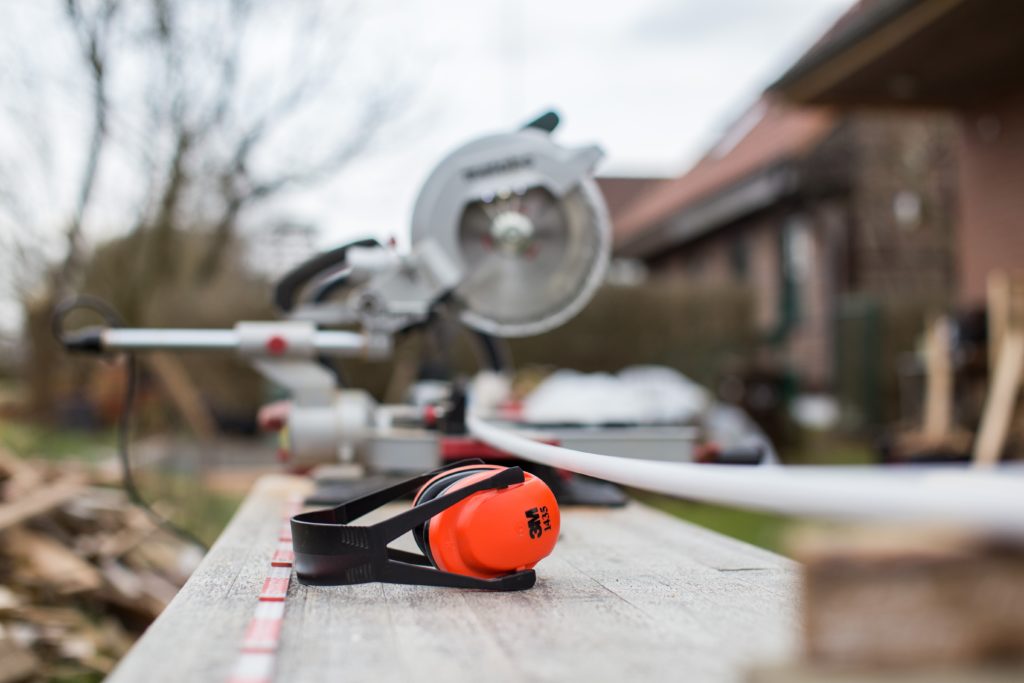Ambient noise is an everyday risk to our health. Continuous exposure to high noise levels can lead to hearing loss, the most common occupational injury in Europe.
Noise in the workplace
Noise can be defined as inarticulate sounds, which are often perceived as unpleasant or irritating and may interfere in our performance at work or lead to hearing loss.
The intensity of sound is measured in decibels (dB) and is expressed in logarithmic scale, which means that a 60 dB sound is a thousand times more powerful than one of 30 dB. The maximum noise intensity to which humans should be exposed during the 8 hours of the working day is 80 dB in order to prevent hearing loss. However, this is only a guideline, as noise-induced hearing loss may occur even below this intensity.
Therefore, it is important to pay close attention to this issue in the workplace. In this article, we will explain how exposure to high levels of noise puts employee health at risk, sometimes causing irreversible damage.

Under current legislation, employers are obliged to assess noise levels in environments with loud sounds. First, the hazards must be identified and sound levels measured to assess the risk to employee health before introducing any necessary measures to resolve or provide protection against the issue.
These control measures can be at an organisational level, such as creating equipment maintenance programmes to reduce noise output or limiting the time employees are exposed to it. Other solutions may include technical measures, which have a direct impact on the source of the noise, such as selecting the most silent equipment or fitting a silencer. Employers must also issue specific equipment to help protect employees from noise, or adapt the environment to allow them to be isolated from the source.
The impact of workplace noise on occupational health
Today, noise is considered a form of contamination that has a negative effect on human health, which makes it both a social and an environmental matter. Prolonged exposure to noise increases blood pressure and exhaustion, in addition to causing several other health issues such as the ones detailed below:
- Temporary hearing impairment: constant exposure to intense noise leads to ear fatigue, from which the hearing can take up to 12-16 hours to recover. If the symptoms of fatigue persist after this length of time, the damage is considered permanent.
- Hearing loss: the first symptom of hearing loss tends to be the inability to detect high-pitched noises. In cases of continuous exposure to noise in everyday life, hearing loss can also begin to involve lower-pitched sounds. This hearing loss may also be induced by a brief exposure to very intense noise, such as that created by staple guns, as these intense blasts of sound can also pierce the eardrum and cause tinnitus.
- Tinnitus: caused by excessive exposure to loud noise. The buzzing or humming associated with it can be the first sign that the ear has been damaged.
- Increased risk of accidents: employees can be distracted by noise, and are therefore more likely to become clumsy or make mistakes. They may also fail to hear warnings and alarms or fully understand any spoken instructions they receive.
- Changes in speech and communication: louder than usual ambient noise means that employees are forced to raise their voices in order to maintain a conversation.
- Stress: caused by factors such as the inability to concentrate or the need to raise the voice. A lack of safe, controlled conditions can make the working environment a source of stress. Ambient noise can also have a physiological impact, such as a dangerous increase in blood pressure during sleep.
- Sleeping issues: these can have a harmful effect on the body and contribute to chronic disorders such as heart disease.

Have you ever suffered any hearing issues as the result of exposure to noise at your workplace? Do you think that the standard safety measures in the workplace are enough to protect hearing against noise-induced damage? Let us know by leaving a comment on this article.

0 Comments
6 Pingbacks